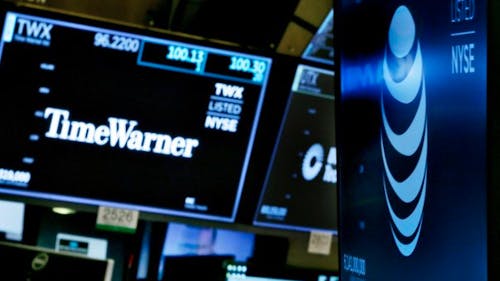Consolidation of media companies elicit business, artistic concerns

This past Tuesday, the federal government lost another effort to unravel AT&T’s billion-dollar merger with Time Warner that was officially announced in June of 2018. Merger mania has plagued the telecommunications industry as service providers are seeking to heavily expand their consumer bases and put out quality content at the same time. This historic merger between AT&T and Time Warner is already on its way to reshaping the media industry from the inside out.
The U.S. media industry has witnessed – and has been widely affected by – consolidation over the years. The influence of big-name companies like Facebook and Google stretches to nearly all four corners of the world and this latest merger is nothing new. But not every aspect of this merger is positive, as questions like, “Is this merger going to raise the prices for consumers?” and the potential risk of excluding content from independent platforms are coming to the surface.
In the past few years, AT&T has developed into the country’s second-largest telecommunications company. Time Warner is the storytelling media giant that owns HBO, CNN and TBS and is strictly a content-producing business. There is growth and power at stake for AT&T in this blockbuster deal, but anti-trust critics and politicians are speaking out against this massive consolidation of power and entertainment.
The Department of Justice argued that the merger completely ignores basic economic principles. The Justice Department argued that AT&T “would have both the incentive and the ability to raise its rivals’ cost and stifle growth of innovative, next-generation entrants that offer attractive alternatives to AT&T/DirectTV’s legacy pay-tv model — all to the detriment of American consumers,” according to an article in CNN Business.
For millions of Americans, the merger means that AT&T will not only control the pipeline of distribution of content but also the content itself. AT&T can go as far as offering a great deal on its service while also pitching that its new-and-improved phone plan comes with access to CNN, HBO and other platforms under Time Warner at a cheaper price than its competitors.
AT&T’s decision to buy Time Warner is tied to the way our phones have changed the future of media. Thanks to Netflix and widespread streaming services readily available on any number of our devices, there is a lot of money to be made in the AT&T-Time Warner merger. And this merger won’t be the first time we’ve witnessed a media conglomerate forming before our eyes. In 2017, The Walt Disney Company announced that it would be moving to acquire 21st Century Fox for $52 billion and the merger is expected to be completed this March.
Big media consolidation poses a threat not only to market competition but to free speech. As massive media companies merge into powerhouses in the way that AT&T and Disney have done, alternative viewpoints in the media and voices of different people face the threat of being drowned out by these media giants who consider their narrative to be outside the mainstream.
For many small and independent media outlets, this merger and media consolidation, in general, could mean being pushed out of the competition and leaving many workers unemployed. In her testimony, author, television writer and former president of the Writers Guild of America, Victoria Riskin, said, "I can tell you that over the past decade, diversity of production sources in the marketplace has been eroded to the point of near extinction ... The opportunity for access for a broad range of voices has been cut dramatically.”
As media consolidation is on the rise, the argument made by big merging companies like Disney is that now we have more choices on cable and streaming services. But, what they fail to highlight is that more channels don’t really mean more choices. Rather, the argument is keen on selling us the illusion of having more content to pick from.
In reality, we have shifted drastically in the past 15 years from original and diverse content being produced by small and medium-size networks to the media industry monopolizing and being obsessed with making sure everything has high ratings. Independent networks, creatives and consumers in the upcoming years have to make sure that they aren’t being fooled into a better deal but actually getting their money and time’s worth.



